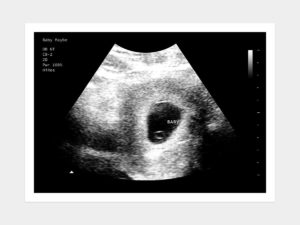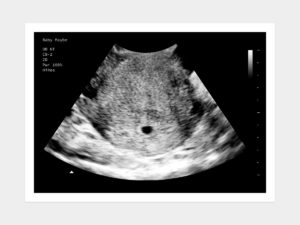
Pregnancy is a momentous journey filled with hope and excitement, but occasionally, complications can arise. One such complication is an ectopic pregnancy, a condition where the fertilized egg implants itself outside the uterus. Understanding the causes, recognizing the symptoms, and seeking timely treatment are crucial to safeguard the health of the mother. We will explore ectopic pregnancies, what happens, what to look for, and available treatment options.
An ectopic pregnancy occurs after an egg is fertilized by a sperm cell. In a normal pregnancy the fertilized egg travels down through the fallopian tube and implants itself into the lining or wall of the uterus. In an ectopic pregnancy, instead of traveling to the uterus the egg implants itself somewhere outside of the uterus, usually this occurs in the fallopian tube. It is possible for the fertilized egg to implant itself in other locations within the body such as an ovary, the cervix, and in extremely rare instances inside the abdominal cavity. These locations are unable to support the pregnancy, which poses serious health risks for the mother.

Several factors contribute to the occurrence of ectopic pregnancies:

Recognizing the symptoms of an ectopic pregnancy is crucial for early diagnosis and treatment. The following symptoms may indicate an ectopic pregnancy:
An ectopic pregnancy is a medical emergency and it is crucial to confirm the diagnosis as soon as it is suspected.
Ultrasound: An ultrasound examination can visualize the interior of the uterus to determine if embryonic tissue is growing normally inside the uterus. If the uterus is empty an ectopic pregnancy is possible.
Blood Tests: Blood tests measure the levels of human chorionic gonadotropin (hCG), a hormone produced during pregnancy. In an ectopic pregnancy, hCG levels may rise more slowly compared to a normal pregnancy. An elevated hCG and an empty uterus is highly suspicious of an ectopic pregnancy.

Once an ectopic pregnancy is diagnosed, prompt treatment is essential to prevent serious complications. The choice of treatment depends on various factors, such as the size and location of the ectopic pregnancy, the woman's overall health, and the presence of complications. Available treatment options include:
In some cases, if the ectopic pregnancy has caused severe damage to the fallopian tube or if there are multiple ectopic pregnancies, the affected tube may need to be removed to prevent future complications.

Experiencing an ectopic pregnancy can be emotionally challenging for the woman and her partner. Seeking emotional support from loved ones, healthcare professionals, or support groups can provide comfort during this difficult time. Understanding that ectopic pregnancies are not the result of anything the woman did or didn't do can help alleviate guilt or self-blame.
Ectopic pregnancies are a serious condition that require immediate medical or surgical attention. Understanding the causes, recognizing the symptoms, and seeking prompt treatment are crucial for the health and well-being of the mother. If you suspect you may be experiencing an ectopic pregnancy, consult with a healthcare provider for a proper diagnosis and appropriate care immediately. Early detection and intervention significantly improve outcomes and reduce the risk of complications.
The information is presented to be a general guide to present information about ectopic pregnancy. It is for informational purposes only. The information provided is not intended to be the only information available concerning ectopic pregnancy. The material provided is not expected to be a substitute for advice or information from your physician or health care provider.
If you have any questions, concerns, apprehensions, unease, or worry about your fetus’ development contact your health care provider immediately.








ALL WARRANTIES OF ANY KIND WHATSOEVER EXPRESS, IMPLIED, AND STATUTORY, ARE HEREBY DISCLAIMED. ALL IMPLIED WARRANTIES OF MERCHANTABILITY AND FITNESS FOR A PARTICULAR PURPOSE ARE HEREBY DISCLAIMED. THE PRODUCTS SOLD, INCLUDING SONOGRAMS, ULTRASOUNDS, FAKE PREGNANCY DOCUMENTS, AND FAKE PREGNANCY TESTS ARE SOLD ‘AS IS’ BASIS.
THE SITE CANNOT AND DOES NOT CONTAIN [MEDICAL/ LEGAL/ FITNESS/ HEALTH/ OTHER] ADVICE. THE INFORMATION IS PROVIDED FOR PRANKS PURPOSES ONLY AND IS NOT A SUBSTITUTE FOR PROFESSIONAL ADVICE.
ACCORDINGLY, BEFORE TAKING ANY ACTIONS BASED UPON SUCH INFORMATION, WE ENCOURAGE YOU TO CONSULT WITH THE APPROPRIATE PROFESSIONALS. WE DO NOT PROVIDE ANY KIND OF MEDICAL/ LEGAL/ FITNESS/ HEALTH ADVICE. THE USE OR RELIANCE OF ANY INFORMATION CONTAINED ON THIS SITE, OR OUR MOBILE APPLICATION, IS SOLELY AT YOUR OWN RISK.
THIS WEBSITE DOES NOT PROVIDE MEDICAL ADVICE. THE INFORMATION, INCLUDING BUT NOT LIMITED TO, TEXT, GRAPHICS, IMAGES AND OTHER MATERIAL CONTAINED ON THIS WEBSITE ARE FOR PRANK PURPOSES ONLY. NO MATERIAL ON THIS SITE IS INTENDED TO BE A SUBSTITUTE FOR PROFESSIONAL MEDICAL ADVICE, DIAGNOSIS OR TREATMENT. ALWAYS SEEK THE ADVICE OF YOUR PHYSICIAN OR OTHER QUALIFIED HEALTH CARE PROVIDER WITH ANY QUESTIONS YOU MAY HAVE REGARDING A MEDICAL CONDITION OR TREATMENT AND BEFORE UNDERTAKING NEW HEALTH CARE REGIMEN, AND NEVER DISREGARD PROFESSIONAL MEDICAL ADVICE OR DELAY IN SEEKING IT BECAUSE OF SOMETHING YOU HAVE READ ON THIS WEBSITE.
THE PARTIES AGREE THAT ANY PRODUCT PURCHASED ON THE BABY MAYBE WEBSITE SHALL NOT BE USED FOR ANY PROPOSE OTHER THAN AS A PRANK. WITHOUT EXCEPTION NO BABY MAYBE PRODUCT SHALL BE PROVIDED/SUBMITTED TO ANY GOVERNMENTAL OR OTHER AGENCY, MEDICAL DOCTOR, ARBITER OF A DISPUTE, AS PROOF OF PREGNANCY, PAST OR CURRENT, OR TO CLAIM ANY BENEFIT FOR WHICH A PREGNANT WOMAN MAY BE ELIGIBLE, OR ENTITLED TO RECEIVE, BASED ON HER BEING PREGNANT. NO HIPAA PROTECTED PATIENT HEALTH INFORMATION CONNECTED TO ANY BABY MAYBE PRODUCT, IS INTENDED, OR CONVEYED, WITH RESPECT TO THIS SALE.
THE PARTIES AGREE THAT BABYMAYBE IS NOT RESPONSIBLE FOR ANY LIABILITY WHATSOEVER FOR DELAYS IN SHIPPING THE PRODUCT. THE PARTIES FURTHER AGREE THAT THE SOLE REMEDY FOR ANY SHIPPING DELAYS IS THE REFUND OF THE PURCHASER’S PAYMENT FOR THE PRODUCT.
THE PARTIES AGREE THAT THE FORUM FOR ANY LEGAL ACTION ASSOCIATED WITH THE SALE AND PURCHASE OF THE PRODUCT IS THE STATE OF ILLINOIS.